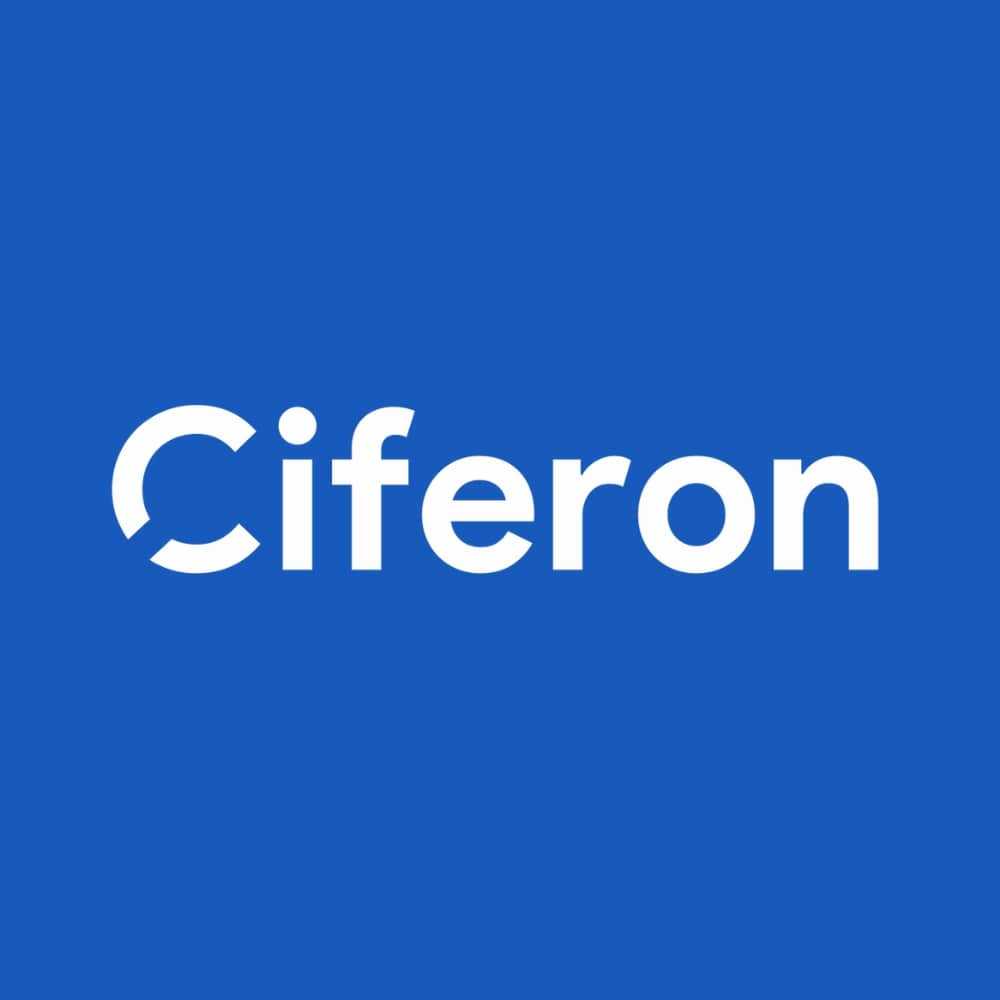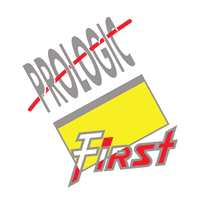Description

Ciferon

MQSYS Hotel
Comprehensive Overview: Ciferon vs MQSYS Hotel
Sure! Let’s delve into both Ciferon and MQSYS Hotel, examining their primary functions, target markets, market share comparisons, user base, and key differentiating factors.
Ciferon
a) Primary Functions and Target Markets:
- Primary Functions: Ciferon is predominantly a restaurant management software aimed at automating and simplifying restaurant operations. Its core functionalities include point of sale (POS) systems, inventory management, billing, customer relationship management (CRM), and reporting and analytics.
- Target Markets: Ciferon targets small to medium-sized restaurants, cafes, and food-related businesses. It caters to a diverse range of dining establishments that require efficient and user-friendly management systems to streamline operations.
b) Market Share and User Base:
- Market Share: Ciferon is a competitive player in the restaurant management software market, particularly in regions where digital transformation in dining businesses is on the rise. However, it faces competition from larger, more established platforms in the global market.
- User Base: Ciferon enjoys a growing user base primarily comprised of independent and franchise restaurant owners who value its ease of use and affordability.
c) Key Differentiating Factors:
- Ease of Integration: Ciferon is known for its seamless integration capabilities with existing systems and various payment gateways, making it a flexible option for businesses transitioning to digital solutions.
- Cost-Effectiveness: The software is priced competitively, offering robust features for a lower cost compared to industry giants, making it attractive to budget-conscious small to medium businesses.
- User-Friendly Interface: Ciferon emphasizes an intuitive interface, which reduces the learning curve and facilitates faster implementation and adoption.
MQSYS Hotel
a) Primary Functions and Target Markets:
- Primary Functions: MQSYS Hotel is a hotel management software that focuses on automating hotel operations. Its functionalities include reservation management, front desk operations, housekeeping management, billing, CRM, and revenue management tools.
- Target Markets: MQSYS Hotel targets small to mid-sized hotels, resorts, guesthouses, and other accommodation providers seeking an integrated solution to manage their operations efficiently.
b) Market Share and User Base:
- Market Share: In the hotel management software market, MQSYS Hotel holds a niche position, catering particularly to mid-sized accommodation businesses. It faces competition from larger, more established hotel management systems but maintains a solid presence in specific regional markets.
- User Base: The user base comprises primarily mid-sized hotel chains and independent hotels that benefit from its cost-effectiveness and comprehensive features.
c) Key Differentiating Factors:
- Comprehensive Features: MQSYS Hotel offers a broad suite of management tools specifically tailored for the hospitality industry, enabling holistic management of hotel operations.
- Scalability: The software is designed to scale with business growth, accommodating the needs of expanding hotel enterprises.
- Cloud-Based and Versatile: MQSYS Hotel is often praised for its cloud-based system, allowing hoteliers to manage operations remotely and ensuring data accessibility and security.
Comparison and Conclusion
While both Ciferon and MQSYS Hotel focus on managing operations in the hospitality industry, they differ significantly in their specific functionalities, target markets, and user needs:
- Target Market and Focus: Ciferon zeros in on restaurant management, providing tailored solutions for food service businesses, whereas MQSYS Hotel is designed for hotels and accommodations.
- Function Specificity: Ciferon's strengths lie in POS and inventory management specifically for restaurants, while MQSYS Hotel excels in areas like booking and reservation management for hotels.
- Market Reach and Scalability: While both serve small to medium businesses, the level of scalability offered by MQSYS Hotel is distinct due to evolving needs in the hotel sector.
Both Ciferon and MQSYS Hotel carve out niches in their respective domains by offering specialized, cost-effective solutions catering to sector-specific demands, though larger players provide stiff competition in terms of market reach and technological advancements.
Contact Info

Year founded :
2016
+91 91122 39021
Not Available
India
http://www.linkedin.com/company/ciferon-pos

Year founded :
Not Available
Not Available
Not Available
Not Available
Not Available
Feature Similarity Breakdown: Ciferon, MQSYS Hotel
To provide a feature similarity breakdown for Ciferon and MQSYS Hotel, we would need to evaluate each product's core features, user interfaces, and any unique aspects that might differentiate them. Here’s a structured analysis based on typical attributes of hospitality and restaurant management software:
a) Core Features in Common:
Both Ciferon and MQSYS Hotel are designed to streamline operations, aiming to improve efficiency in hospitality environments, albeit slightly different focuses (Ciferon for restaurants and MQSYS for hotels). Common core features likely include:
-
Point of Sale (POS) Integration: Both platforms probably offer comprehensive POS functionalities, managing transactions and facilitating cash and digital payments efficiently.
-
Inventory Management: They likely provide tools for tracking stock, assessing usage, and helping maintain optimal inventory levels to reduce waste and costs.
-
Customer Relationship Management (CRM): Both systems might feature CRM tools to manage customer details, preferences, and past interactions to enhance personalized service.
-
Reporting and Analytics: The inclusion of reporting tools that help in analyzing sales data, inventory status, and other metrics for operational insights is expected in both systems.
-
User Management: These platforms likely allow for user roles and permissions, ensuring that staff have appropriate access levels depending on their responsibilities.
b) User Interface Comparison:
Without specific screenshots or user feedback, we can generalize based on typical industry standards:
-
Ciferon: As a restaurant-focused tool, Ciferon may prioritize speed and simplicity, offering an interface that’s easy for waitstaff and managers to navigate quickly. Its interface might focus on menu management, order tracking, and table layout visuals.
-
MQSYS Hotel: As a hotel management system, MQSYS likely features a broad and more complex UI tailored for different departments such as front desk operations, housekeeping, and reservation management. This complexity might necessitate a more comprehensive dashboard with more detailed navigational capabilities.
c) Unique Features:
While there may be overlap in features, each product likely offers unique aspects that cater to their respective target audiences:
-
Ciferon Unique Features:
- Table Management: Advanced table and reservation management tools tailored for restaurant floor plans.
- Menu Customization Tools: Sophisticated features for creating and customizing digital menus, including dynamic pricing and ingredient tracking.
-
MQSYS Hotel Unique Features:
- Room Booking and Allocation: Detailed room management capabilities, including booking, check-in/check-out processing, and room status updates.
- Housekeeping Management: Specific tools for managing housekeeping schedules and room cleaning status, essential for hotel operations.
- Channel Management: Integration with various online travel agencies (OTAs) and booking engines to manage multi-channel reservations.
Both Ciferon and MQSYS Hotel cater to specific needs within the hospitality industry, thus tailoring their offerings to best support their intended users, whether in food service or accommodation management.
Features

Not Available

Not Available
Best Fit Use Cases: Ciferon, MQSYS Hotel
Ciferon and MQSYS Hotel cater to different aspects of the hospitality and food service industries, offering tailored solutions for businesses based on their specific needs and operational complexity. Here's a detailed overview of the best fit use cases for each:
a) Ciferon
Best Fit Use Cases:
- Types of Businesses:
- Restaurants and Cafes: Ciferon is well-suited for standalone restaurants, cafes, and small to mid-sized restaurant chains that require efficient point-of-sale (POS) systems to streamline billing, order management, and inventory control.
- Cloud Kitchens: With its focus on managing multiple outlets and ensuring smooth online order integration, Ciferon is ideal for cloud kitchens that operate primarily on delivery models.
- Pubs and Bars: Venues that need quick table turnarounds and simple, intuitive interfaces for staff.
- Projects:
- POS System Implementation: Projects that require the rollout of an advanced POS system featuring real-time analytics, order management, and customer engagement tools.
- Inventory Management Optimization: For businesses looking to optimize their supply chain and reduce waste through effective inventory management solutions.
b) MQSYS Hotel
Preferred Scenarios:
-
Types of Businesses:
- Hotels and Resorts: MQSYS Hotel is specifically designed for the broader requirements of hotel management, including room reservations, guest services, and housekeeping management.
- Boutique Hotels and Inns: Smaller establishments looking for a comprehensive software solution to manage all aspects of their operations without heavy upfront capital investment in IT infrastructure.
- Service Apartments: Facilities needing tools to coordinate long-term stays with efficient check-in/check-out processes.
-
Projects:
- Property Management System (PMS) Implementation: Deploying a robust PMS for comprehensive hotel operations, from front desk management to back-office coordination.
- Guest Experience Enhancement Initiatives: Projects aimed at enhancing guest satisfaction through personalized services and efficient resource management.
d) Industry Verticals and Company Sizes:
Ciferon:
- Industry Verticals: Primarily targeted towards the food and beverage industry, including restaurants, cafes, bars, and cloud kitchens.
- Company Sizes: Best suited for small to medium-sized businesses. Its scalability allows for growing businesses to adopt new modules as needed without significant investment from the start.
MQSYS Hotel:
- Industry Verticals: Focused on the hospitality industry, specifically hotels, resorts, inns, and service apartments.
- Company Sizes: Caters well to medium-sized hotel chains and independent hotels, providing a full suite of tools for operations management. Its flexibility allows smaller establishments to benefit by choosing customizable features that meet their specific needs.
By catering to these industries, Ciferon and MQSYS Hotel support businesses by streamlining operations, enhancing customer experiences, and increasing operational efficiency, allowing companies to focus on growth and service excellence.
Pricing

Pricing Not Available

Pricing Not Available
Metrics History
Metrics History
Comparing teamSize across companies
Conclusion & Final Verdict: Ciferon vs MQSYS Hotel
To provide a conclusion and final verdict for Ciferon and MQSYS Hotel, we need to evaluate their value proposition, pros, cons, and practical recommendations for potential users:
a) Best Overall Value:
Overall Value Choice: This depends on specific business needs. However, for many establishments:
- Ciferon often provides better overall value for smaller to medium-size restaurants due to its integration capabilities, user-friendly interface, and cost-effectiveness.
- MQSYS Hotel caters better to hotel properties requiring robust PMS (Property Management System) features integrated with F&B services, making it valuable for medium to large hotels that serve food and beverages.
b) Pros and Cons:
Ciferon:
Pros:
- Usability: User-friendly interface ideal for restaurant staff with varied levels of tech knowledge.
- Integration: Excellent integration with various POS (Point of Sale) and third-party applications for seamless operations.
- Affordability: Cost-effective for small to medium-sized establishments.
- Scalability: Offers scalable features suitable for expanding restaurant chains.
Cons:
- Industry Limitation: Primarily focused on restaurant operations, less suitable for comprehensive hotel management.
- Limited Features: It may lack certain advanced features required by larger establishments.
MQSYS Hotel:
Pros:
- Comprehensive Features: Offers extensive PMS features including reservations, room management, and check-in/out processes.
- Integration: Solid F&B integration for hotels, which complements their hospitality offerings.
- Customization: Highly customizable for different types of hotel operations.
- Support: Often comes with robust support and training options for implementation.
Cons:
- Complexity: Can be more complex to operate and may require specialized training.
- Higher Cost: Generally more expensive, potentially limiting its feasibility for smaller entities.
- Overhead: May include features not needed by all users, leading to unnecessary operational overhead.
c) Recommendations for Users:
-
Assess Needs: Users should start by analyzing their specific business requirements. Restaurants with straightforward needs might prefer Ciferon's harmonious integration with third-party apps. In contrast, hotels that need detailed PMS and integrated F&B services could lean towards MQSYS Hotel.
-
Budget Consideration: Smaller budget restaurants should gravitate towards Ciferon, whereas larger hotels with more significant budget allocations might find MQSYS Hotel advantageous despite the cost.
-
Feature Prioritization: Understand which features are crucial. For restaurants, focus might be on effective POS and ease of use. Hotels should emphasize strong PMS features with good F&B integration.
-
Future Growth: Consider future expansion. If growth is anticipated, choosing a system that can scale efficiently without exorbitant costs is essential.
-
Trial and Demonstrations: Wherever possible, users should take advantage of free trials or demo offerings to grasp the software's functionality in real-time and assess compatibility with existing systems.
By examining these factors, users can make a more informed decision that aligns with both their operational needs and strategic goals.
Add to compare
Add similar companies



